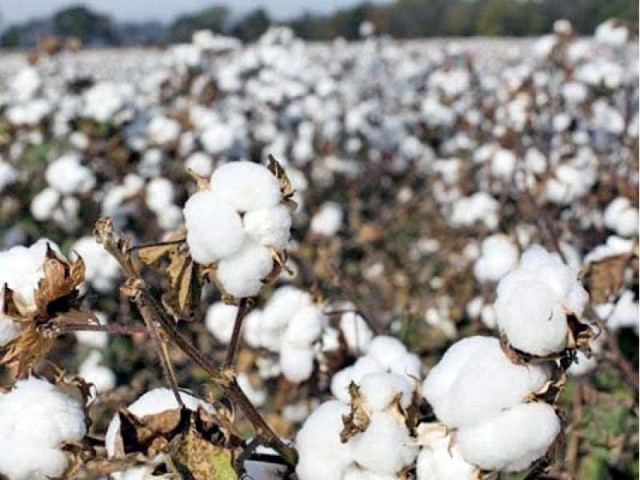Miftah asked to open India trade
Textile exporters are keen to import cotton from India to save time, cost

Finance Minister Miftah Ismail, on Monday, hinted at allowing imports of cotton from India after textile exporters demanded 2.5 million bales to meet an emergent shortfall caused by the calamitous floods that washed away about half the country’s total crop.
The proposal to allow the import of cotton and vegetables from India was discussed during a meeting between Finance Minister Miftah Ismail and a delegation from the Pakistan Textile Exporters Association (PTEA), led by its Patron-in-Chief Khurram Mukhtar.
Rejecting pressure from industrialists hoarding the commodity, and are now lobbying against allowing imports, Ismail said, “We will allow the import of cotton to ensure our mills are able to fulfil their export orders,” added, however, that the import destination was yet to be decided.
“First create an environment for allowing imports from India,” the finance minister told PTEA, explaining that the country had practically severed trade ties with India after New Delhi unilaterally changed the status of Indian occupied Jammu & Kashmir over three
years ago.
Earlier, the finance minister was unable to muster enough support for his previous proposal to allow the import of tomatoes and onions from India to meet a shortfall caused by the floods. Last week, however, Pakistan’s Foreign Office said that no proposal was under consideration to revive trade with India.
The floods, having washed away all the standing cotton, rice and sugarcane crops, deemed the Ministry of Finance’s initial projections of 11 million cotton bales being produced improbable. Revised estimates suggest that production may remain around 5.5 million bales only.
The textile exporters, however, are keen to import cotton – their basic raw material – from India via land to save time and logistics cost.
In a report, the Ministry of Planning assessed that Sindh’s cotton crop had been completely wiped out and 70% of the rice crop had been damaged. Expected delays in wheat sowing, due to inundated lands, will also take a toll in the form of lower output. Therefore, important crops gross value addition is expected to reduce by 10.5%.
Minor crops including chillies, tomatoes and onions, having also faced the brunt of flash floods, and are assumed to be contributing 5% lower value added to GDP during the current fiscal year.
Due to severe damage to crops incurred in Sindh, Balochistan and KPK, the agriculture sector’s growth is expected to decelerate by 0.7% against the annual planned target of 3.9%, according to the Ministry of Planning’s initial assessment that has also shown the overall GDP growth for this fiscal year at 2.3%.
Subsidised Gas issue
The exporters also took up the issue of the providing subsidised gas to export-oriented industries. The finance minister assured that the decision to provide gas at $9 per mmbtu rate will be implemented with effect from the start of the fiscal year, instead of from August.
Confusion over the applicability of revised gas rates was created due to the misinterpretation of the cabinet’s decision. While the Commerce Ministry is of the view that the Cabinet had set the revised tariff rates of electricity with effect from August while gas rates would be implemented from July 1. However, the Cabinet Division said that the revised rates of gas and electricity would take effect from August.
The PTEA also raised the issue of different gas prices for Sindh and Punjab-based industries, urging the finance minister to implement weighted average cost to bring parity in gas prices across the country. Ismail, however, did not commit his support due to a difference of opinion among coalition partners.
Currently, Punjab-based industries were getting gas at $9 per mmbtu while Sindh-based industries paid $3.9 per mmbtu – a huge difference of 57% that was making industries in Punjab uncompetitive.
The PTEA also demanded that the exporters deferred sales tax refunds of Rs36 billion in 32,000 pending cases should be disbursed in due course.
An official hand out from the Finance Ministry stated that the PTEA apprised the finance minister about the contribution of the textile sector exports in overall sustainable economic growth of the country. They also discussed various issues being faced by exporters, especially related to exports and tax refunds.
Ismail assured that government wanted to enhance the overall exports of the country and every possible support would be provided in this regard. According to the ministry, the finance minister also directed the relevant authorities to take desired steps to resolve these issues.
Published in The Express Tribune, September 6th, 2022.
Like Business on Facebook, follow @TribuneBiz on Twitter to stay informed and join in the conversation.


















COMMENTS
Comments are moderated and generally will be posted if they are on-topic and not abusive.
For more information, please see our Comments FAQ